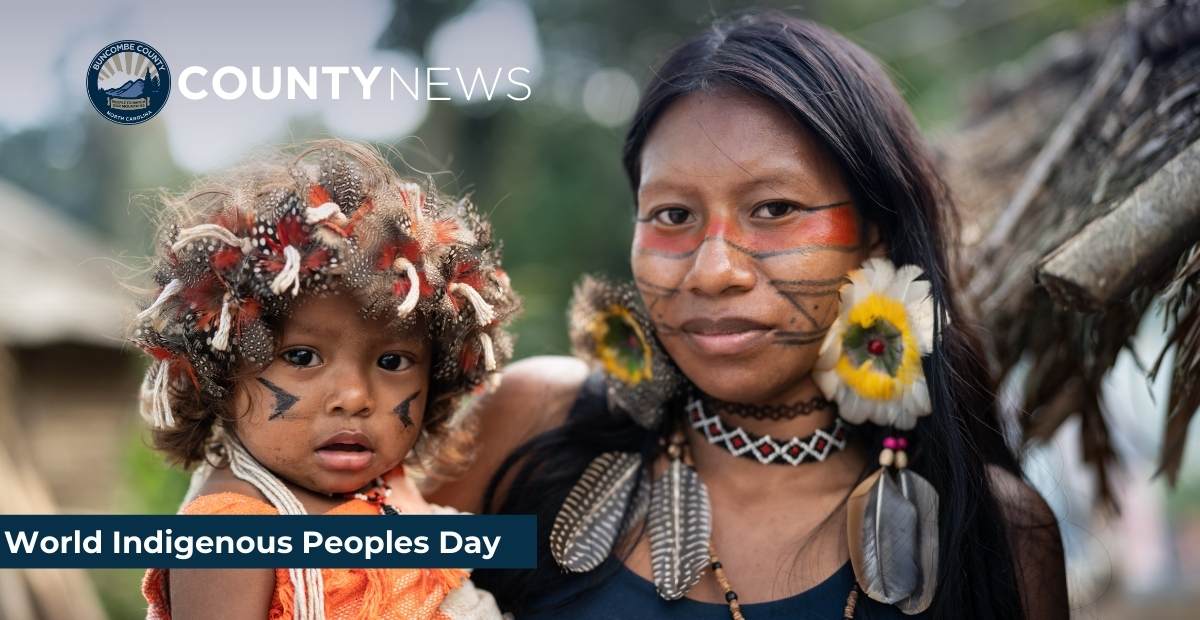This news item expired on Wednesday, October 9, 2024 so the information below could be outdated or incorrect.

The International Day of the World’s Indigenous People is observed on Aug. 9 each year. This day was first proclaimed by United Nations General Assembly in December of 1994, marking the day of the first meeting of the U.N. Working Group of indigenous populations in 1982. The day aims to raise awareness and protect the rights of the world's indigenous population. It also recognizes the achievements and contributions that Indigenous people make to improve world issues such as environmental protection.
Each year the U.N. selects a theme to highlight the specific problems faced by indigenous communities. Past topics have included Indigenous languages, Indigenous peoples' migration and movements, and Indigenous peoples' right to education. This year’s theme will be Protecting the Rights of Indigenous Peoples in Voluntary Isolation and Initial Contact.
Across the World
Indigenous Peoples live in all regions of the world and own, occupy, or use approximately 22% of the global land area. Indigenous Peoples speak an overwhelming majority of the world’s estimated 7,000 languages and represent 5,000 different cultures. Despite their cultural differences, Indigenous Peoples from around the world share common problems related to the protection of their rights as distinct peoples. Many Indigenous Peoples continue to be confronted with marginalization, extreme poverty, and other human rights violations.
In Buncombe County
The geographic region that is now Buncombe County was home to many indigenous towns, including a settlement at the confluence of the French Broad and Swannanoa Rivers on the present-day Biltmore Estate. Traditionally, Buncombe County and much of its surrounding land belonged to the Anigiduwagi, more commonly known as the Cherokee. In the early 18th century, the estimated population of the Cherokee People was 36,000. By 1770, however, only about 7,000 Cherokees remained. According to the U.S. Census, Native Americans and Alaska Natives make up 0.6% of the Buncombe County Population.
Despite centuries of oppression, exploitation, and genocide, the Eastern Band of Cherokee Indians (EBCI) remains a cornerstone of Western North Carolina culture. Located in Cherokee, North Carolina, the Eastern Band of Cherokee Indians were once part of a much larger Cherokee Nation population. However, when the Trail of Tears was mandated, and forced removal and relocation were directed by the US government and then President Andrew Jackson, the Cherokee Tribe became divided into what is known today as the Cherokee Nation and United Kituwah Band, located in Oklahoma, and the Eastern Band, made up of those who remained and rebuilt within North Carolina’s Qualla Boundary (sometimes called the Cherokee Indian Reservation).
Preserving Indigenous culture and knowledge is vital for the diversity and richness of human heritage, indigenous people’s traditional knowledge and practices contribute to sustainable development and environmental conservation. Efforts to protect indigenous languages, traditions, and rights are crucial in maintaining the cultural diversity and resilience of indigenous communities. Overall, The National Day of the World’s Indigenous People is an important occasion to honor the contributions of indigenous people and to reaffirm the commitment to protecting their rights and preserving their culture.
More information about the Buncombe County Equity and Human Rights Office is available at buncombecounty.org/equity.
Employees and members of the community can file a discrimination complaint through the Equity and Human Rights Website or by contacting the Non-Discrimination Coordinator at NDO@buncombecounty.org.
Residents have access to the Racial Equity Action Plan Dashboard at https://buncombe.clearpointstrategy.com.
Sources:
https://www.unesco.org/en/international-day-worlds-indigenous-peoples
https://www.buncombecounty.org
https://www.exploreasheville.com/
https://www.census.gov/quickfacts/fact/table/buncombecountynorthcarolina
https://ebci.com/